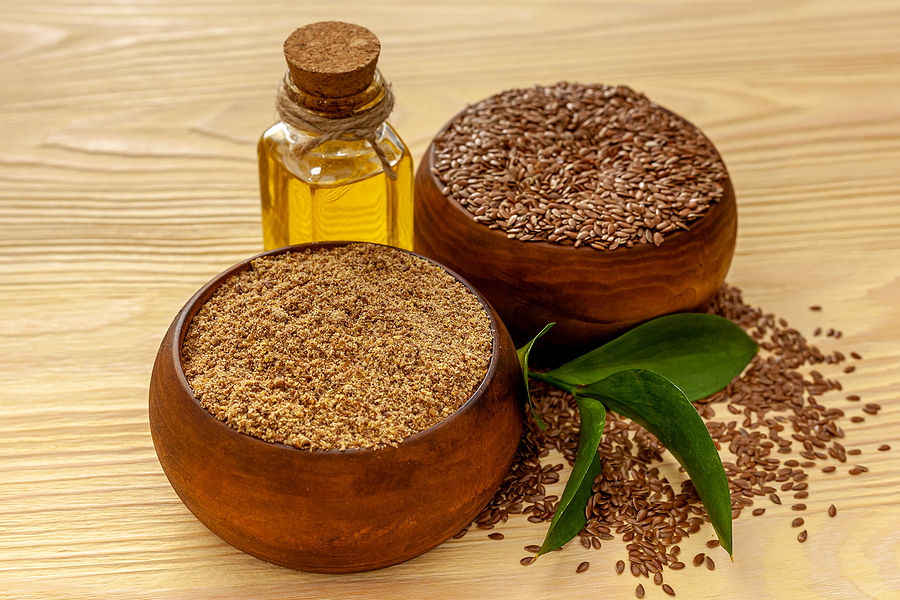What are the benefits of flaxseed?
If you have never heard of flaxseed where have you been? Over the past few years, it has become an on-trend wonder food, a powerhouse product on everyone’s lips. It is everywhere from toppings on cereals to additions to your daily smoothie.
Extremely versatile as a ground powder, seed and oil, some call it the most powerful plant food there is. All very high praise for this tiny seed that has been around for centuries.
Here we delve into the facts to find out what the health benefits of flaxseed and flaxseed oil are and how they can make a difference to you?
Flaxseed packs a nutritious punch
Flaxseed as with most seeds is full of nutrients, but what makes it so popular is that it is positively loaded with nutritional goodness. Just one tablespoon a day gives you a rich source of Omega-3 fatty acids, dietary fibre and protein.
Most nutritionists say that you should eat ground rather than whole flaxseed to enjoy all the health benefits. Whole seeds can be ground at home if you cannot find the powder in-store. Flaxseed oil can be taken in capsule form or simply as an oil.
They could help reduce cancer risk
Flax contains up to 800 times more lignans than other plant foods. These plant compounds have antioxidant properties which can help towards lowering cancer risk and improving health in general.
Some studies show that eating only 25 grams of flaxseed a day may reduce tumour growth in certain cancers. It may also lower the body’s production of estrogen and could help in breast cancer prevention.
They are high in fibre
Packed full of fibre, adding ground flaxseed into your diet can help with regular bowel movements and therefore improve digestive health.
One tablespoon a day in a smoothie or yoghurt will give you three grams of fibre which is between 8 and 12% of the recommended daily amount for men and women.
Fibre can also help reduce cholesterol and prevent diseases such as diabetes, bowel cancer and heart disease. As with any food rich in fibre you should drink a good amount of water when adding flaxseeds into your diet to avoid constipation.

Toast with poached egg, flaxseeds, avocado and tomato
May reduce heart disease
Omega-3 fatty acids have a huge range of health benefits as they contain anti-inflammatory properties to help keep your heart healthy and reduce the risk of strokes.
Flaxseeds are rich in ALA (alpha-linolenic acid) which is a plant-based omega-3 fatty acid and one of two essential fatty acids your body cannot produce. Various studies show that the ALA present in flaxseed helps to lower cholesterol and reduce inflammation in the arteries.
Can help with weight control
The high fibre content of flaxseeds means they are a handy way to prevent hunger and feel fuller for longer. The soluble fibre within them appears to slow down digestion in the stomach which then signals to the body that you are satisfied. Careful not to eat too much though as it can lead to bloating.
Skin health may improve
If your skin is prone to dryness and roughness then consider the benefits of flaxseed oil. Added into your diet rather than onto the skin it may help with smoothness as well as hydration. For more serious skin conditions such as dermatitis, flaxseed oil has also been shown to reduce itchiness, redness and swelling.
If you are thinking about the benefits of flaxseed and flaxseed oil and including it in your diet, it is so easy. Some simple tips are to drizzle flaxseed oil into your salad dressing or mix ground flaxseed into your yoghurt or glass of water in the morning.
As with any food though, be careful not to go overboard and consume too much. Add it into your diet over time and talk to your GP if you have any concerns.
Melina - Assistant Editor
Latest posts by Melina - Assistant Editor (see all)
- By yourself at Christmas this year? Tips on how to manage alone - December 16, 2024
- The Silversurfers, just for fun, Christmas Quiz! - December 14, 2024
- 10 potential hazards for pets at Christmas - December 10, 2024
- Christmas Spiced Blueberry Panettones - December 1, 2024
- Three must have toys of the late 60’s - November 24, 2024




















